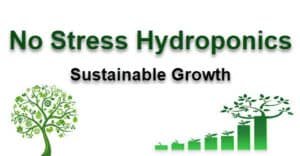
Are you interested in expanding your green thumb to hydroponic farming? You’ve likely heard of the potential benefits of this sustainable and eco-friendly agricultural process, including more efficient crop growth and greater space efficiency. But what are some of the chemicals that come into play when it comes to successful hydroponic farming? In this blog post, we’ll explore the necessary chemical components so you can successfully launch your own hydroponic operation!
What Are Hydroponic Farming Chemicals?
Hydroponic farming chemicals are essential components in the world’s agricultural system. Utilized primarily in hydroponic farming systems, these chemicals help provide nutrients necessary for plant growth and health. These include soluble minerals such as nitrogen, potassium, magnesium, and phosphorus. Without them, plants will struggle to receive the necessary nutrients they need to grow strong and healthy. Hydroponic farming systems rely on a combination of these essential nutrients to feed the plants safely and effectively. Depending on what types of plants you’re growing, different concentrations of the various chemicals will be required either directly through the water or through supplemental solutions. Each type of plant requires a specific amount of nutrition so it’s important to understand which chemical solutions are needed for optimal results. Hydroponic farmers often fine-tune their regimen until each plant is receiving exactly what it needs for peak growth and health. Investing in quality hydroponic farming chemicals can ensure plants are receiving the full spectrum of essential minerals they needs for sustenance and vitality.
What Hydroponic Farming Chemicals Does One Need?
Hydroponic farming is a method of soil-less cultivation in which plants are grown in water enriched with nutrients. This efficient way of gardening requires the use of special chemical fertilizers and minerals to supply the essential nutrients that plants need to thrive. Regardless of the size and scope of your hydroponic farm, there are some basic chemicals all growers must have on hand. Among these is a pH adjustor to regulate acidity levels so plants can properly absorb their required nutrients. Hydroponic gardeners should also use a comprehensive plant nutrient solution that contains nitrogen, phosphorus, potassium, calcium and/or magnesium, as well as trace elements including iron, manganese, boron and zinc. Other helpful chemicals include hygrolon material for root support and a flowering agent to promote growth and flowering during bloom stages. With all these tools at the ready, hydroponic farmers can rest assured their gardens will stay healthy and thriving for years to come.
When Do You Need Hydroponic Farming Chemicals?
Hydroponic farming uses grow systems not requiring soil. This can be a great way to produce more crops faster and with fewer pests while conserving water. However, hydroponic farming also requires specific chemicals to help the plants grow in optimal conditions. Nutrients that are dissolved in water are essential for optimal plant growth, and this is generally achieved through fertilizer or mineral salts added to the mix. These essential elements can come in many forms such as chemical nutrients or organic composted manure teas. Deficiencies such as nitrogen, phosphorus, and potassium need to be replenished on a regular basis and some of these must be found in chemical form due to their lack of availability from natural sources. This can include chelated iron and magnesium sulfate which both ensure your plants will have enough necessary elements to thrive without needing soil. Ultimately, when determining what chemicals are needed for hydroponic farming success you should consult professionals regarding the crop you plan on growing to make sure the plants receive all of the nutrients necessary for a healthy harvest!
Benefits Of Chemicals For Hydroponic Farming
Hydroponic farming, an advanced method of agriculture, has revolutionized the way farmers cultivate plants and vegetation. This method involves growing plants in nutrient-rich water as opposed to soil, and its potential is being maximized with the advent of chemicals. Nutrients like nitrogen, phosphorus, iron and more are combined with water to produce a specialized chemical solution that helps ensure each crop is getting the vitamins and minerals it requires – a process made much more efficient with the use of pre-mixed chemical solutions. Additionally, since hydroponic farming doesn’t rely on traditional soils or fertilizers, there’s an immense reduction in costs related to sourcing these materials. Furthermore, compared to traditional farming methods that take longer from planting to harvesting crops, hydroponics helps users reap delicious fruits and vegetables faster – sometimes up to 50% sooner! Every farm has different needs so having access to different chemicals offers users versatility in creating combinations tailored specifically for them; this also saves both time and resources down the road needed for replenishing what works best for their farm.
Things To Consider When Using Hydroponic Farming Chemicals
When using chemicals for hydroponic farming, it is important to consider the effects they have on soil, plants, animals and environment. Start by researching different hydroponic farming chemicals available on the market and understanding how each will benefit your crop. Understand the directions given for use and always follow those instructions. Check for any incompatibilities between different hydroponic farming chemicals and don’t combine them together if this could cause a reaction. Additionally, find out what the purpose of each chemical is and make sure that you know about its safety precautions before handling it. As it’s always important to stay updated with new subjects, take some time every now and then to learn more about advancements related to chemical use in hydroponic farming in order to be able to work smarter as well as safer.
The Final Verdict
In conclusion, hydroponic farming is a popular and efficient way to grow crops. Indoor farmers will need to carefully select the right growing medium, air and water pumps, pH testers, and light fixtures for their plants. They will also need to choose the correct chemicals for their hydro system according to what stage of growth their plants are in. By following these tips, indoor farmers can set up a successful hydroponic farm that yields healthy plants.
